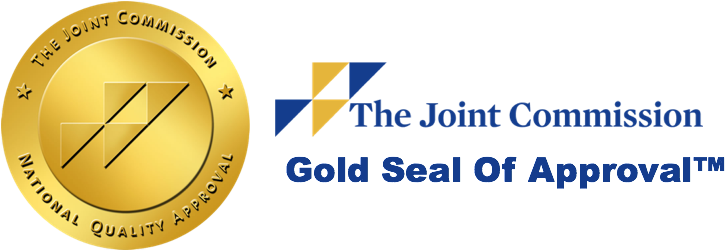When people stop taking substances, such as alcohol or recreational drugs, they will find that they go through a combination of physical and mental side effects. In order to rid the body of toxins, this is a necessary step. This process of getting through withdrawal can be taxing and may require a combination of substance and alcohol detox and a rehabilitation program to get through.
What Is Substance and Alcohol Detox?
Detoxification is the process of cleansing the body of specific substances. When someone decides they no longer wish to be dependent on substances or alcohol, they need to undergo a substance and alchohol detox process and either be weaned off them through a tapering schedule or quit “cold turkey.” In both cases, it is often difficult and dangerous to go through the substance and alcohol detox process on your own. Therefore, substance and alcohol detox programs exist where you can go through this phase while under the supervision of medical professionals. These programs put you through a controlled withdrawal, which will invariably come with side effects.
Note that some people opt for a “natural detox,” where they choose not to utilize a detox facility. This can be a dangerous gamble as you will not have the same experience as a doctor. That’s why it is vital to make sure you are consulting with a medical professional in an environment where they can care for you and, if necessary, provide medication-assisted treatment (MAT).
The Physical Impact of Substance and Alcohol Detox
When going through a controlled withdrawal, you will begin to experience physical side effects. These effects vary by person and severity, depending on the level of abuse and the substances the individual is withdrawing from.
Some of the most common symptoms of withdrawal include:
- Pain
- Fatigue
- Anxiety
- Irritability or unstable mood
- Cravings
- Sweating
- Headaches
- Insomnia
- Nausea or vomiting
- Hallucinations
- Increased blood pressure
- Tremors
These are only a few of the long list of symptoms that can and will affect someone going through substance and alcohol withdrawal. It is important to realize that this process may take days to recover. The average amount of time spent in the substance and alcohol detox and withdrawal process is three to 10 days. However, with severe and chronic addictions, it can take even longer.
There are a number of reasons for extended withdrawal periods, including:
- Length of substance abuse
- Type of substances used
- Amount of substance in the system
- The severity of withdrawal symptoms
- Amount of medical assistance required
These symptoms will lessen over time but will be quite hard to deal with at first. However, one of the main things to remember is that when during a substance and alcohol detox, you are flushing your system of toxins. This allows your liver the space it needs to begin processing again. Your lymphatic system has been unable to process natural and foreign substances properly. Therefore, a considerable part of any substance and alcohol detox program must be dedicated to getting your body as close to where it was before addiction took over. This system restart will put you back on solid footing.
The Emotional Impact of Substance and Alcohol Detox
With so much emphasis on the physical impact of withdrawal, it may seem easy to ignore the emotional impact. However, when a person goes through substance and alcohol detox, they experience a variety of emotions and mood swings that will feel strange and uncomfortable. It is not completely out of the question for people to yell, lash out, and cry as they are finally able to release all the emotions they have felt for as long as they can remember. This can be intense, cathartic, and painful; however, it is the first step toward total healing.
Long-Term Substance Abuse Treatment
During your time in long-term treatment, you will find that your physical substance and alcohol detox symptoms will lessen even as you learn how to deal with your emotional issues in a therapy-based program. Therapy is not a short-term solution and should be viewed as a commitment of mind, body, and time.
There is no quick fix, and when you commit yourself to an inpatient program, you will be put on a multi-step path. These will include group therapy, individual therapy, medication-assisted treatment, and in some cases, nontraditional therapies. During your detox, you may have already been given certain medications to help you through the process. Those medications may continue during the rehabilitation phase of your treatment.
A Learning Process
In the end, substance and alcohol detox and withdrawal are painful experiences with worthy outcomes. Many people with substance use problems will either realize they need to stop or be confronted by others. When that day comes, it is crucial to remember what you have done to your body and mind and just how hard it will be to get yourself back to square one. However, going through withdrawal may be a deterrent of its own in the future. It is important to note that going forward, even though you may never return to the substance you have been abusing, any other addictive substance will require the same type of withdrawal and detox program.
Your time in long-term treatment will teach you how to find your safety net so that you can avoid future bouts of substance abuse. This will keep you away from needing to deal with withdrawal and the physical and emotional damage you will inflict on yourself. Make sure to stick with the program, which means the difference between living well or needing to once again go through withdrawal.
Get Help From The Phoenix Recovery Center
Going through withdrawal can be a painful and scary ordeal. That is why one of the best ways to get through it is in a safe and secure detox program. In these programs, you will find knowledgeable and caring staff whose only job is to make sure you can make it through the process as painlessly as possible. They will assist you mentally and physically, keep you safe, and allow your body to return to being healthy and devoid of dependence. For people who have a tendency to use substances to lessen their pain and trauma, there are also inpatient therapy programs offered in rehabilitation centers. These programs will help with the after-effects of withdrawal and detox while allowing you to meet others who are going through the same process. Interested in this type of care? Call The Phoenix Recovery Center today at (801) 438-3185.







